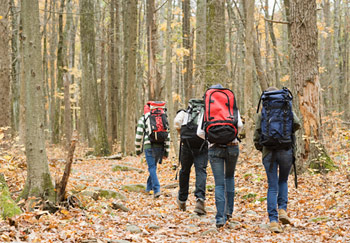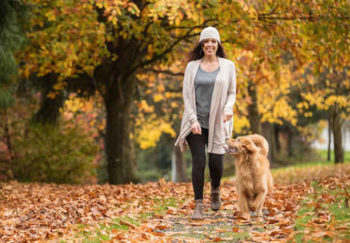
As the cold winter days transition to warmer weather and longer-lasting sunlight, many people spend more time outside. Living in central Virginia next to the Blue Ridge Mountains makes hiking, camping and spending time in the great outdoors a popular activity in this area.
As we start venturing back out and planning those outdoor activities, it’s important to keep safety and wilderness survival tips in mind. Even a short trip can quickly become a nightmare if you aren’t prepared.
Learning Survival Tips in the Wild
UVA offers wilderness medicine training to prepare the next generation of great doctors for injuries and emergency situations that may occur out in the wilderness.
I recently got to join Christopher Holstege, MD, and a group of medical students on a hike up Old Rag Mountain to learn more. These trips are a regular part of the medical toxicology fellowship and medical student elective rotation that Holstege instructs. They typically go on these hikes to learn how to identify toxic plants and mushrooms or to discuss wilderness survival.
We were able to learn a lot and enjoy a spectacular sunrise as we hiked up Old Rag. These are some of the wilderness survival tips we talked about.
Subscribe to our blog
Get more health and safety tips in your email each week by subscribing to our blog.
General safety tips:
- Bring a friend or go with a group, especially if you’re going to a remote area
- Take extra water or items to filter or disinfect water
- Pack extra food items
Clothing:
- Dress appropriately for hiking and potential weather changes
- Pack extra clothes in your bag so you can add layers if needed
- Wear sturdy shoes with good traction
- Wear pants to prevent contact with poison ivy or stinging nettles
Equipment to consider:
- Multi-tool or pocket knife
- Something to start a fire , such as a good flint
- Bandages and medical wrap
- Rope
- Tarp to stay dry or transport an injured person out of the woods
- Space blanket to stay warm if temperatures drop
- Splint to support a sprain or fractured bone
- Weather radio
- GPS tracker, rescue beacon or satellite phone if you’re going to an area with no cell service
- Mace or an air horn to scare off any bears
If you have any other tips or suggestions, leave us a comment!

